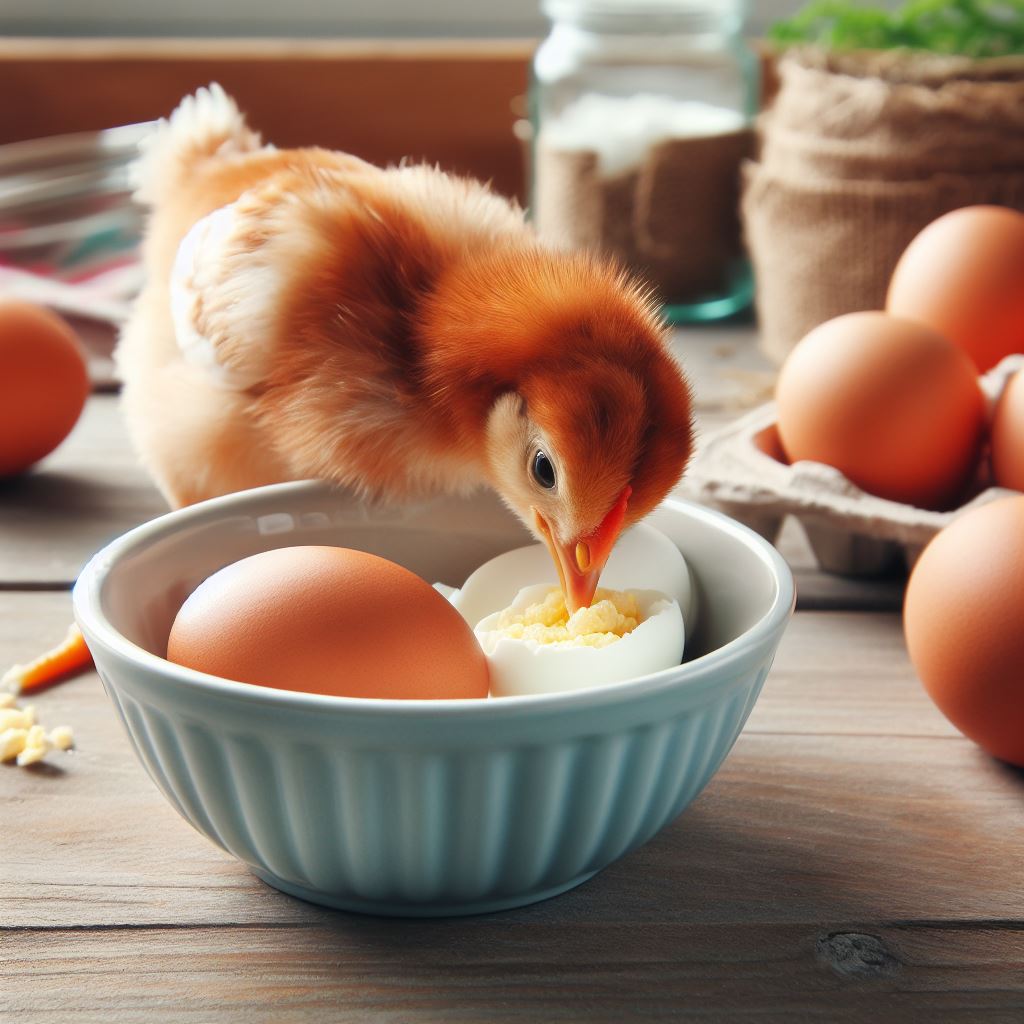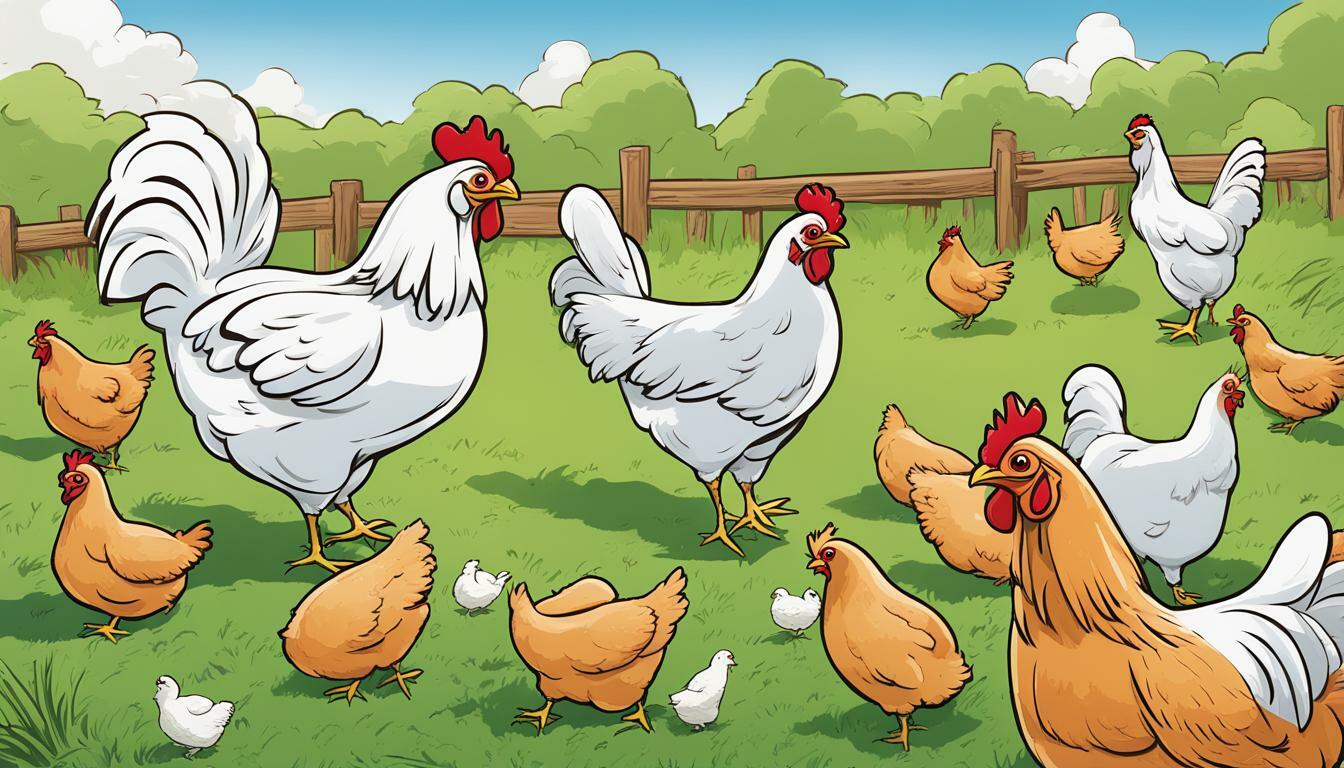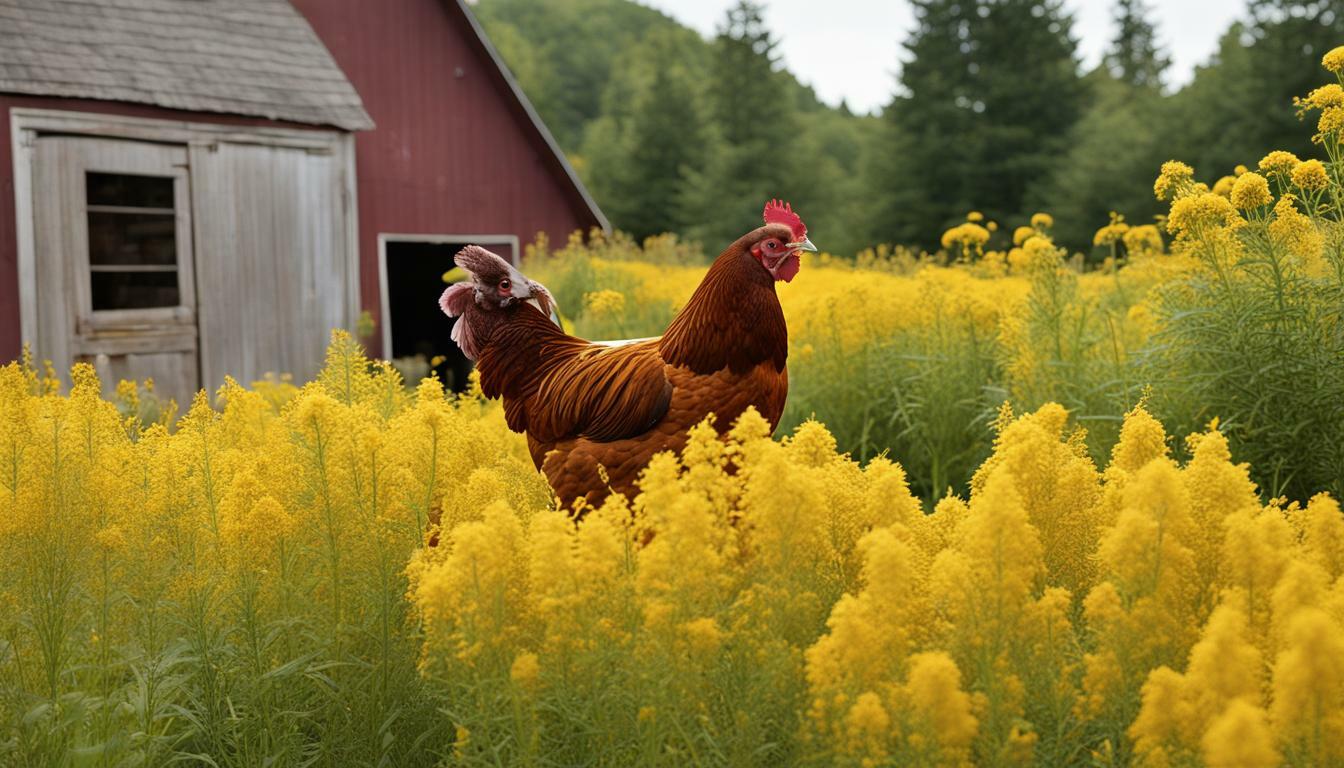Can Chickens Eat Minnows? Discover the Answer And Benefits
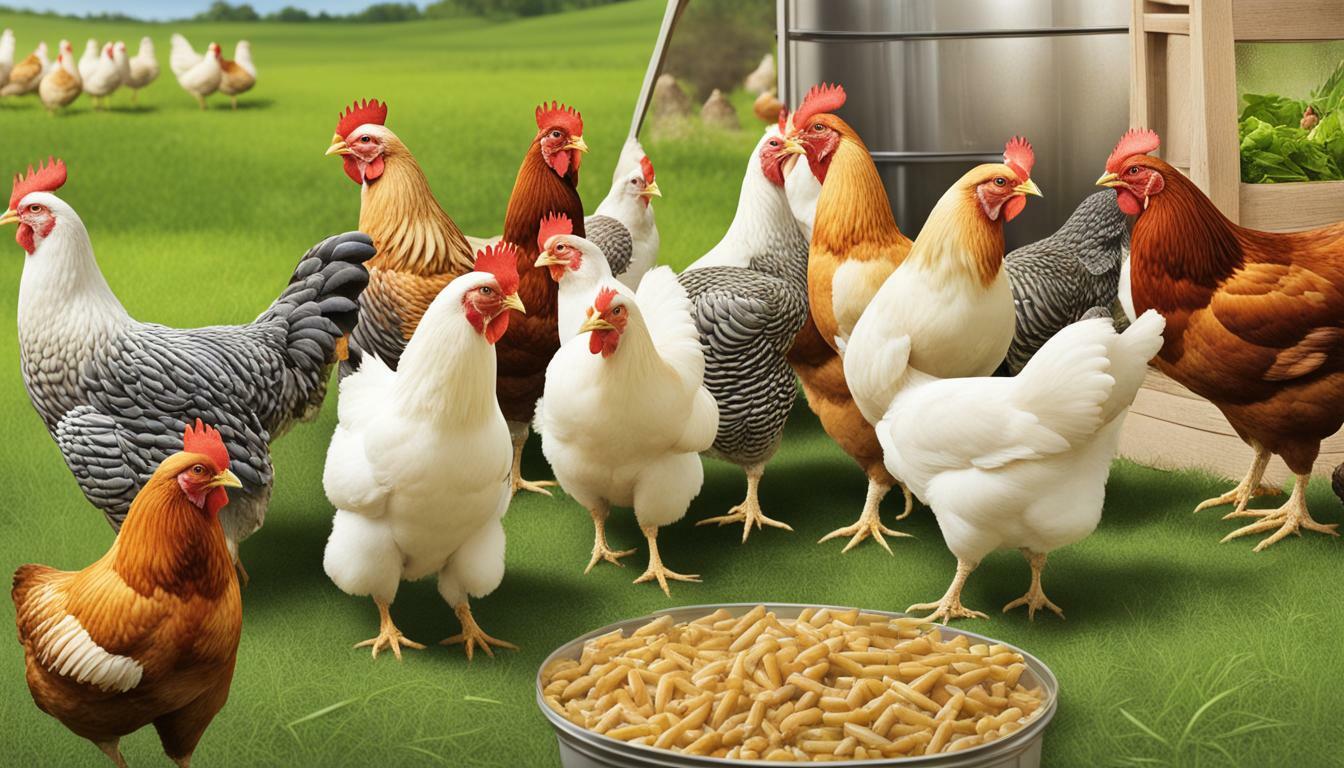
Table of content:
Chickens are omnivorous birds that can eat a wide variety of foods. Minnows, which are small freshwater fish, can be part of a chicken’s diet in moderation. However, there are some important considerations when feeding minnows or fish to chickens.
Key Takeaways:
- Chickens are omnivores and can eat small fish like minnows in moderation.
- Whole, small minnows are safer for chickens than larger fish with bones.
- Only feed chickens cooked, fresh, or thawed frozen minnows, not live ones.
- Minnows provide beneficial nutrients but can also introduce pollutants.
- Feed minnows in limited quantities as an occasional treat.
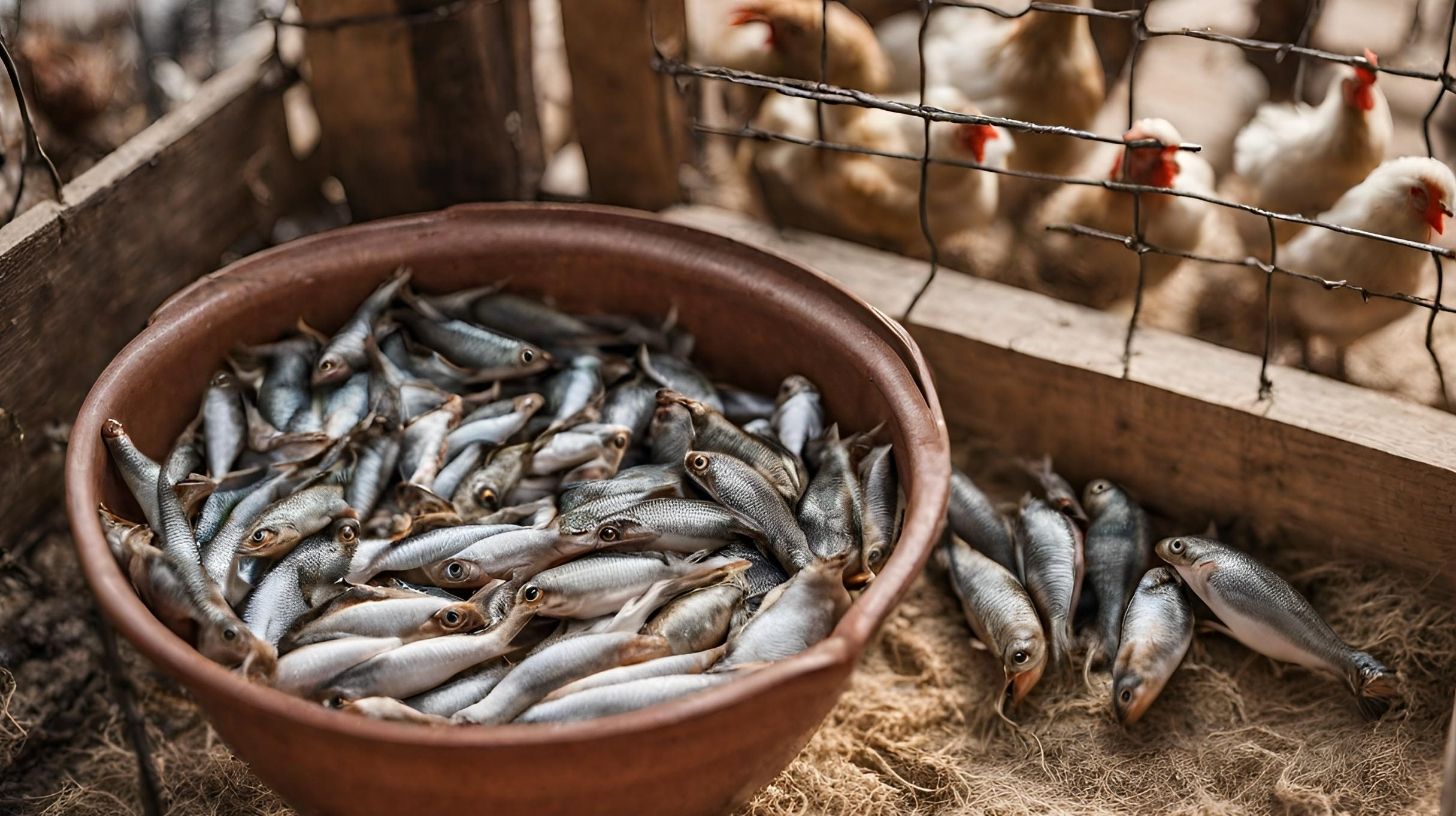 Are Minnows Safe for Chickens to Eat?
Are Minnows Safe for Chickens to Eat?
In the wild, chickens will eat a variety of insects, plants and even small animals like minnows. Domestic chickens retain these omnivorous tendencies. Small whole minnows are generally safe for chickens to eat in moderation.
However, there are some important safety considerations:
- Only feed chickens completely thawed frozen minnows or cooked minnows. Raw minnows may contain harmful bacteria or parasites.
- Avoid feeding chickens live minnows as they can injure chickens when swallowed.
- Remove any sharp bones before feeding larger fish to prevent impaction.
- Limit fish intake to avoid excessive exposure to pollutants like mercury.
As long as safety precautions are followed, incorporating an occasional minnow or two into a chicken’s diet can provide health benefits without harm.
What Do Chickens Eat in The Wild?
Chickens are omnivorous birds that have a diverse natural diet. Wild or free-range chickens will eat:
- Insects like flies, worms, beetles, crickets, mealworms
- Seeds, grains
- Fruits, berries
- Greens, grasses, leaves
- Small reptiles and amphibians
- Mollusks like snails and slugs
- Arachnids like spiders
- Small fish and minnows
- Rodents, eggs
This varied diet provides balanced nutrition for optimum chicken health and egg production. It’s ideal to try to mimic some diversity in domestic chicken diets.
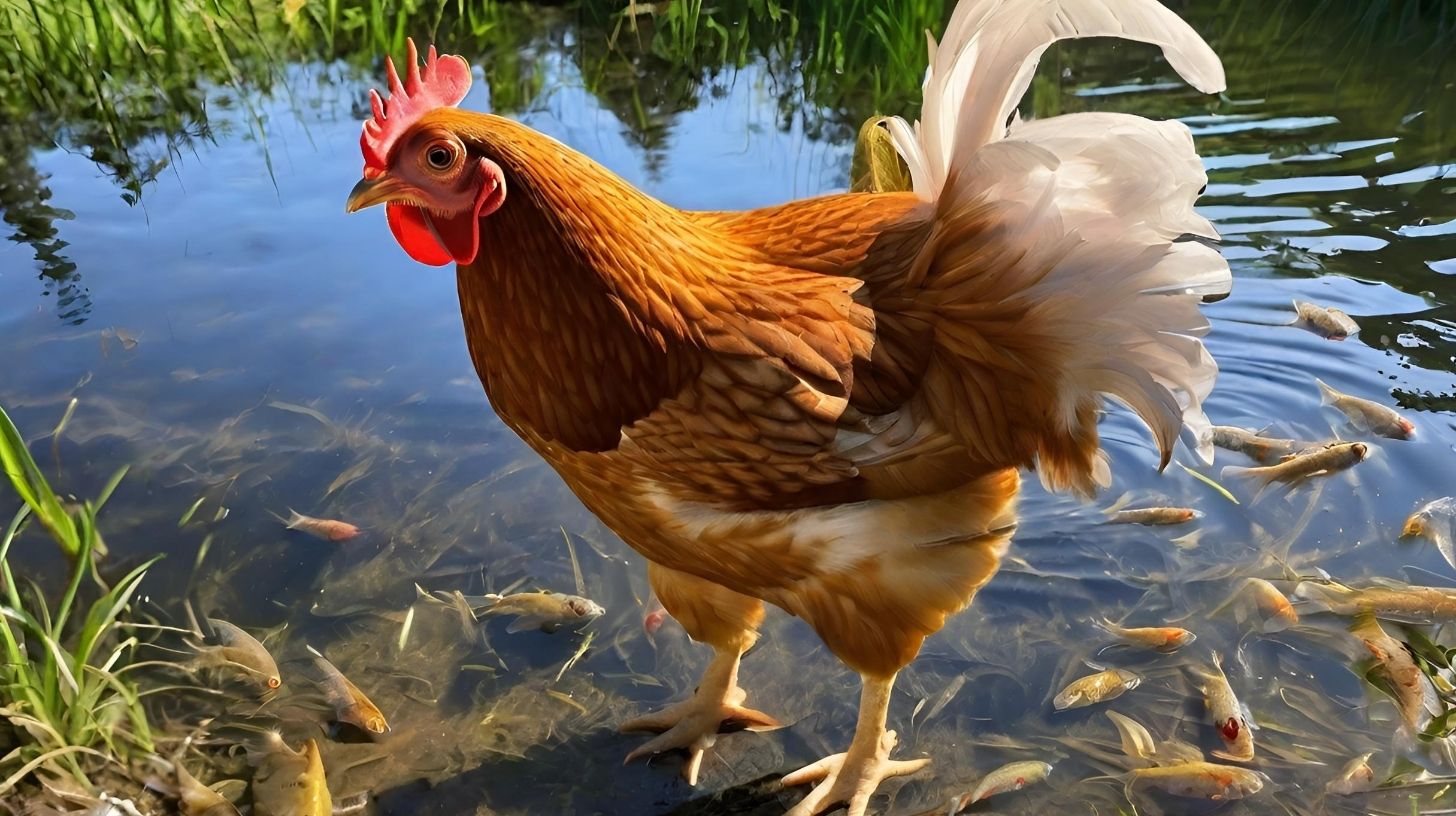 Can Chickens Eat Small Fish?
Can Chickens Eat Small Fish?
Yes, chickens can safely eat small fish like minnows and goldfish in moderation. Fish can provide beneficial nutrients:
| Nutrient | Benefit to Chickens |
|---|---|
| Protein | Important for growth and egg production |
| Omega-3 fatty acids | Promote heart, brain and joint health |
| Vitamin B12 | Boosts metabolism and egg production |
| Vitamin D | Strengthens bones and immunity |
| Phosphorus | Needed for metabolism and egg shells |
| Zinc | Supports feather and egg development |
However, there are some safety precautions to follow when feeding fish to chickens:
- Avoid large fish with sharp bones that could injure chickens. Stick to small whole fish like minnows.
- Only feed cooked, thawed frozen or dried fish, not raw or live fish.
- Remove all bones, especially if feeding larger fish cuts.
- Limit total fish intake to 1-2 times per week to avoid excessive pollutants.
Overall, small whole minnows are a nutritious supplemental treat for chickens in moderation.
Can Chickens Eat Goldfish?
Goldfish are small freshwater fish in the same family as minnows that are also safe for chickens to eat. Like minnows, goldfish provide beneficial protein, omega-3s and other nutrients.
However, the same size and preparation precautions apply:
- Only feed chickens whole small goldfish, not large fancy goldfish.
- Cook, freeze or dry goldfish before feeding to chickens.
- Remove any sharp bones or fins before feeding larger cuts of goldfish.
- Limit total goldfish intake as part of a varied diet.
In moderation, goldfish can be a nutritious supplemental snack that provides variety for chickens.
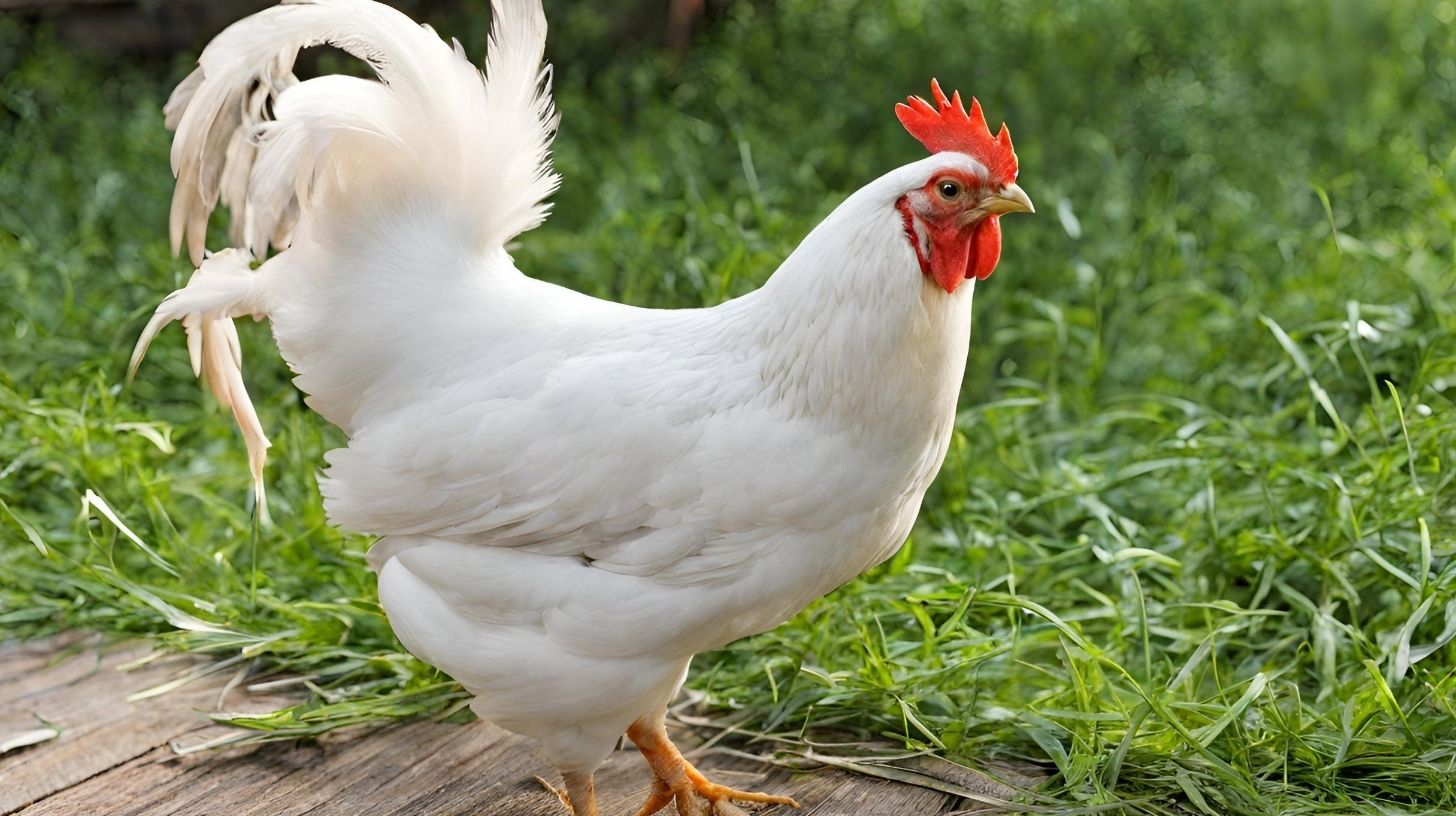 Do Chickens Eat Fish in The Wild?
Do Chickens Eat Fish in The Wild?
Yes, wild chickens will eat small fish like minnows when they can access them. Chickens are omnivores, not strict vegetarians, and will eat insects, amphibians, reptiles, eggs and even small mammals in addition to seeds and plants.
Wild or free-range domestic chickens allowed to forage freely will naturally seek out and consume small fish from streams or ponds for the beneficial protein and nutrients they provide.
However, fish bones and pollutants require caution. Wild chickens likely eat only small whole fish they can swallow bones and all. This minimizes risks while allowing chickens to benefit from fish nutrients.
So while chickens aren’t pursuit predators, they will opportunistically eat small fish for nutritional variety.
Is It Okay to Feed Chickens Fish?
It’s perfectly fine to feed chickens fish in moderation as part of a balanced diet. Fish provide beneficial protein, omega-3 fatty acids and other nutrients. Follow these tips for safe fish feeding:
- Stick to small fish: Feed only whole smaller fish like minnows or goldfish. Avoid larger fish with sharp bones.
- Cook or freeze fish first: Only feed cooked, thoroughly thawed frozen or dried fish to kill bacteria and parasites.
- Remove bones: If feeding larger fish cuts, remove all bones first.
- Provide variety: Feed fish only occasionally as part of a diverse diet.
- Watch for reactions: Monitor chickens after introducing new foods and remove if any reactions.
With proper precautions, fish like minnows can provide a healthy, natural supplemental food for chickens.
Should Chickens Eat Fish?
Chickens can safely eat fish in moderation as part of a balanced diet. Here are some benefits of feeding fish to chickens:
- Excellent source of high-quality protein for growth and egg production.
- Provides omega-3 fatty acids for cardiovascular and brain health.
- Supplies vitamins and minerals like B12, D, zinc and phosphorus.
- Adds diversity to simulate natural foraging diet.
- Provides natural enrichment. Chickens enjoy catching live fish in ponds.
However, here are some potential downsides to fish for chickens:
- Fish bones can injure chickens if accidentally swallowed.
- Raw fish may contain harmful bacteria, viruses or parasites.
- Some fish can introduce excessive pollutants like mercury into chicken eggs if fed in large quantities.
Overall, the benefits outweigh the potential risks when chickens are fed small whole fish like minnows in moderation a few times per week.
FAQs
Can chickens eat live minnows?
It’s not recommended to feed live minnows to chickens. Live fish can injure chickens when swallowed if they flap around or have spiny fins. Only feed dead, thoroughly thawed frozen or cooked fish to chickens.
What fish can chickens eat?
Chickens can eat small fatty fish like sardines, anchovies, herring, smelt, and mackerel. They can also eat freshwater fish like trout, tilapia, sunfish, perch, and bass. Only feed smaller whole fish or cuts with all bones removed.
Can chickens eat salmon?
Yes, chickens can eat salmon, but it’s high in pollutants so should only be fed occasionally in small amounts. Cook salmon before feeding and remove all bones.
Do chickens eat fish in the wild?
Wild or free-range chickens will eat small fish like minnows opportunistically if they have access to streams or ponds. However, fish are not a primary component of their natural diet.
Can chickens eat dried fish?
Dried fish is safe for chickens as long as it fully rehydrated before feeding. Rehydrating also helps soften bones for safety. Feed dried fish sparingly since the drying process concentrates pollutants.
Can chicken eat fish bones?
No, chickens should never be fed whole fish with bones or fish scraps containing bones. Bones can lacerate their throat and gizzard. Never feed chickens any poultry bones either.
Conclusion
In conclusion, chickens are omnivorous and can safely consume fish like minnows in moderation. Whole small minnows provide beneficial protein, omega-3s and other nutrients. However, only feed cooked or thawed frozen minnows, not live.
Remove all bones if feeding larger fish pieces. Feed fish occasionally, not daily, watch for reactions, and discontinue if any issues. With proper precautions, a few minnows can provide chickens with a tasty, nutritious supplemental treat without harm.
Welcome. I’m Adreena Shanum, the proud owner of this website, and I am incredibly passionate about animals, especially poultry. I founded adreenapets.com as a labor of love, stemming from my desire to share my knowledge and experiences with poultry enthusiasts worldwide.


